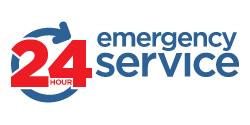Preventing Coronavirus Contamination in Restaurant Equipment
PROUDLY SERVING ALL OF DFW OVER 30 YEARS
Call to Schedule a Service Call Now! - (972) 855-8002
Email/Contact Us
 REPAIR
REPLACE
MAINTAIN
REPAIR
REPLACE
MAINTAIN
Preventing Coronavirus Contamination in Restaurant Equipment
Coronavirus (COVID-19) has been officially classified as a national crisis and many restaurant owners are scrambling to come up with a new-normal business model. Restaurants and bars have always had a duty to protect their customers and staff from infectious diseases – coronavirus or otherwise. The best plan is to have a proactive approach to combatting accidental contamination by following some best practices.

What Should Restaurants Know About How it is Spread?
Coronavirus (or COVID-19) is a contagious disease that is easily transmitted from person-to-person. The virus is spread through airborne respiratory droplets from an infected person through sneezes or coughs.
Many people who have contracted the virus have experienced only mild symptoms or may even be asymptomatic. While this may be good news for those individuals, it's actually bad news for those around them who are trying to avoid it. Many times, someone with COVID-19 may not even know they have it. This leads to accidental contamination because the infected don’t know they are contagious, to begin with.
While there is no fool-proof way to prevent individuals from contracting this strain of coronavirus, there are things you can do to reduce the risk of spreading the disease.
Staff Need to Practice Appropriate Hygiene
The CDC has some specific best practices to help stop the spread of coronavirus and other infectious diseases:
- No handshakes or hugs – use other methods to greet one another without contact
- Clean hands at the door and schedule regular hand washing reminders by email or text
- Create habits and reminders to avoid touching their faces and cover coughs and sneezes
- Disinfect surfaces like doorknobs, tables, food prep surfaces, and handrails regularly
- Increase ventilation by opening windows or adjusting the air conditioning
When washing their hands, your employees should spend at least 20 seconds washing with soap and water. They should always wash their hands after using restroom facilities, touching their face, or handling money.
If an Employee is Sick, Have Them Stay Home
COVID-19 symptoms include fever, cough, and shortness of breath. If you see an employee exhibiting any of these symptoms, you should send them home.
A sick employee, even if they are showing mild symptoms, can be contagious. While an employee's symptoms may not be severe, other employees or patrons may not be so lucky if they catch it.
Follow Proper Ice Handling Practices
An ice machine is not the best environment for viruses like coronavirus to flourish because the virus requires a living cell in order to replicate. That doesn’t mean that it can’t be transferred between people and surfaces while serving ice.
According to David Covell, Health Commissioner for Lorain County, Ohio, and President of the Association of Ohio Health Commissioners, "As is with most of the diseases that might be associated with an ice machine, mostly the danger is someone dishing that ice out with their hand."
If an individual coughs or sneezes into their hand and accidentally touches the ice supply, they can effectively transport that disease to a customer's drink.
Here are a few tips you can follow to prevent the spread of diseases:
- Always keep the bin door closed when ice is not being used.
- Require employees to wash their hands prior to scooping ice out of the bin.
- Always use an ice scoop to dispense ice. Do not scoop using glassware.
- Store the ice scoop outside of the bin.
- Sanitize the ice scoop with a mixture of 2 tsp chlorine bleach per gallon of water (you can also sanitize the scoop in your dishwasher).
Disinfect and Sanitize Your Kitchen Equipment – Including your Ice Machine
Disinfecting and sanitizing your kitchen equipment will kill most any virus – coronavirus included.
There are many approved cleaners the EPA suggests using to combat viral contaminants. Bleach is the most widely used and cost-effect disinfectant on the market.
Keep in mind, disinfecting means using a stronger concentration of the cleaner and must be rinsed. When sanitizing, use smaller concentration and allow to air dry.
Cleaning the Exterior of Your Equipment
Pre-wash any soiled area with warm water
- Wipe the area with a solution of 8 oz of bleach per gallon of water (or other EPA approved cleaner)
- Let the solution sit for at least 5 minutes
- Rinse the area thoroughly with water and let air dry
- To sanitize further, spray the area with a mixture of 2 teaspoons of bleach to one gallon of water
- Let air dry
Cleaning the Inside of Your Ice Bin
- Use a spray bottle to saturate the contaminated surfaces
- Wipe the areas to remove the debris and make sure to rinse the area well
- Once you’ve wiped the bin down after disinfecting, reapply the solution to sanitize
- Leave the mixture to air dry
Make sure you also clean your ice machine’s air filter regularly to decrease the amount of grease or dust that promotes the growth of biofilms.
Keeping Your Customers Safe Should Be Your Top Priority
While coronavirus has us all on heightened alert, we should not forget that keeping customers safe is a full-time job. Many of the practices that the CDC suggests have been in place well before the outbreak of coronavirus. These methods have been tried and tested to protect your staff and customers from accidental contamination. Making a habit of practicing these methods will not only protect people from the spread of coronavirus but many other diseases as well. By keeping a clean and safe work environment, you're doing your part to promote a healthy society.
Business Hours: Monday - Friday 8AM - 5PM *24 Hour Emergency Service*
COPYRIGHT© 2016. ALL RIGHTS RESERVED. ARGEE Mechanical, LLC - Commercial Refrigeration Dallas, TX - LIC.# TACLA11676C


